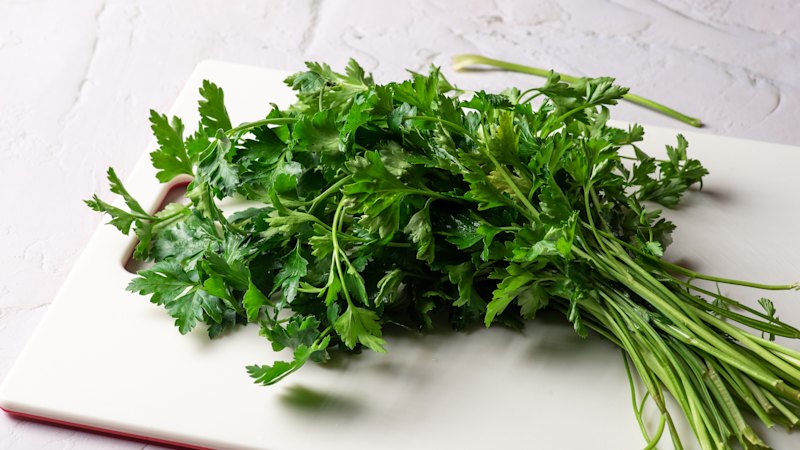
UPDATE: A viral hack is transforming supermarket herbs into thriving plants that can last months, just in time for summer cooking! July 18, 2025 marks a breakthrough for anyone tired of wilted basil and slimy parsley. Experts are revealing how to not only extend the life of these herbs but also maximize their culinary potential.
Interior designer and viral sensation, Leanne Kilroy, has captivated audiences with over 27 million views on Instagram by demonstrating how to rejuvenate small, struggling pots of basil. Kilroy explains that typical supermarket herbs often arrive with cramped roots, stunting their growth. By simply transferring them to larger pots filled with quality compost and watering from below, you can cultivate healthy, bushy plants that may thrive for up to 9 or 10 months.
Mark Diacono, a renowned grower and author, emphasizes that while supermarket herbs may be grown unsustainably, they are still an accessible option for many. “Buying ‘living’ herbs in pots is an easy way to start growing,” he states. The right approach could lead to an abundant supply of fresh herbs.
In addition to replanting tips, experts are sharing new storage techniques for pre-packaged herbs. Victoria Green, a salads and veg expert from Waitrose, advises keeping herbs in their original packages within the fridge’s salad drawer to maintain freshness. Unopened bags can last up to seven days. Once opened, ensure to roll down the bag to keep air out, and for basil, store it in a cool, dry place instead of the fridge.
For those who struggle to use up herbs, Catherine Phipps, author of “Leaf,” suggests a simple yet effective storage method: place herbs in a jar of water and cover with a plastic bag, or wrap damp kitchen towel around the stems and store them flat in an airtight container. This can extend their lifespan by up to two weeks.
Herbs are more than just a garnish; they can elevate your dishes significantly. Csabi Nagy, executive chef at London’s Petersham Nurseries, highlights how herbs like dill, basil, and parsley can enhance scrambled eggs, salads, and even cocktails. “Mint is common, but rosemary adds sophistication to drinks,” he notes.
For those with an excess of herbs, freezing them is an excellent option. Phipps recommends chopping them finely, placing them in ice-cube trays, and topping them with water or olive oil for easy storage. Alternatively, dry herbs like rosemary and thyme can be hung upside down to preserve them for later use.
Don’t let supermarket herbs go to waste! With these expert-backed strategies, you can enjoy fresh flavors and maximize your culinary creations. Stay tuned for more updates on this trending topic that’s reshaping how we utilize herbs in our kitchens.
For more details on how to keep your herbs thriving, check out the full guide at The Telegraph, London.






